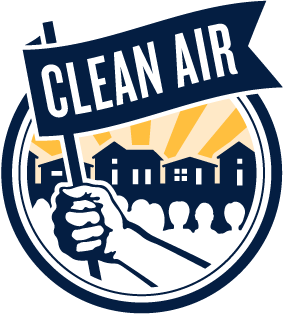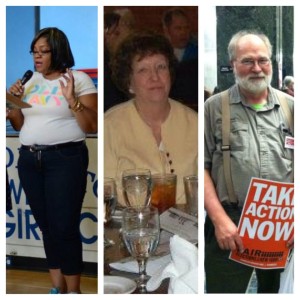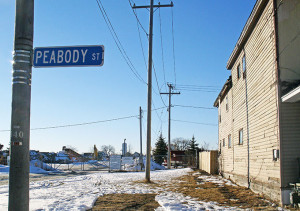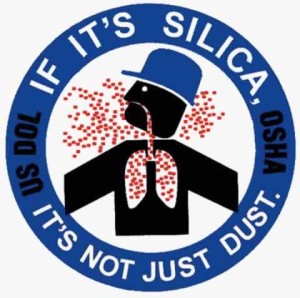Toxic Tour May 14th
Toxic Tours are guided van tours through Tonawanda and Buffalo’s West Side that will stop at a few of the many major pollution and environmental justice landmarks in our region.
- Join the grassroots leaders who are fighting back against corporate polluters and negligent government agencies on a tour of their neighborhoods.
- See Tonawanda Coke; the US’s third largest land port; petroleum terminals; and other plants that are some of Erie County’s largest polluters.
- Learn what’s really in the air in Buffalo and what our grassroots movement is doing to fight back.
Wednesday, May 14th 2014 8AM
Meet and Park at the Boys and Girls Club
at 54 Riverdale Ave. Buffalo NY 14207
Parking at back of building on Edgar Ave.
RSVP to Rachel at 852-3813 or rachel@cacwny.org
Space is limited so reserve your seat today!
Congratulations to our Annual Award Winners!
leadership in the fight for environmental health and justice in Western New York. This individual has demonstrated a deep commitment to action on behalf of Western New York residents and has contributed to the development of powerful strategies to improve community health and the environment. Congratulations to this years winner Ron Malec!
Hotel Lafayette, the Greenhouse Room
391 Washington St. Buffalo, NY
Doors at 6:00 * Dinner served a 6:30 * Cash BarRSVP by May 5, 2014:
341 Delaware Avenue
Buffalo, NY 14202
Tour of Seneca Babcock May 13th
Since Battaglia Demolition began operations a little over 10 years ago residents of Peabody St. and the surrounding neighborhood have complained to the State and City of Buffalo regarding dust and soot coming from the facility; loud noise beginning early in the morning from the bulldozers and the concrete crusher; and massive truck traffic that is routed down small residential streets.
“I can’t open my windows because of all the dust from the rock crushing. It is hard for my kids to play outside because there are so many trucks up and down the street. My kids are always getting bloody noses all day lon g.” Complaint from Peabody Resident to the DEC in 2013
Clean Air has joined resident’s decade long fight earlier this year, working closely with home owners in the densely populated community next to Battaglia’s location in Seneca Babcock.
On May 13th residents will lead a walking tour of their neighborhood and explain how the legacy of industry has impacted their lives. Residents will describe their ten-year fight against concrete crushing, wins and losses and how you can get involved.
For more information on Battaglia Recycling, see the recent article in the Investigative Post
Tonawanda Coke Sentenced
After many months of anticipation and many years of community organizing and hard work, Judge William Skretny sentenced Tonawanda Coke and its environmental control manager on March 19 at the Federal Courthouse in downtown Buffalo. Tonawanda Coke was found guilty in March 2013 of breaking 14 federal laws under the Clean Air Act and the Resource Conservation and Recovery Act. Mark Kamholz, the environmental control manager, was found guilty on the same counts and an additional count of obstruction of justice.
Judge Skretny’s decision included:
* $12.5 million in fines for the criminal violations of the Clean Air Act and Resource Conservation and Recovery Act to go to US Treasury
* 5 years of probation for the company
* Pay $11 million to the University of Buffalo for a 10 year health study & over $700,000 to Citizen Science Community Resources to conduct soil sampling
* 1 year and 1 day in prison for Mark Kamholz, plus a $20,000 fine and a supervised release after serving the term
“While this was a historic event and important victory for the community, we agree with the government that fines and jail time should have been higher,” said Erin Heaney, executive director of Clean Air. “We will continue to fight outside of courtrooms to implement the projects that the community identified,” referring to projects identified in last year’s Participatory Budgeting project organized by Clean Air.
The sentencing came just weeks after an explosion at Tonawanda Coke resounded for miles around on January 31. While Tonawanda Coke representatives initially insisted that the explosion was minor, there were no injuries, and only water vapor was released, the story changed as community members grew more concerned and Clean Air called for a full investigation into the explosion.
It was eventually revealed that two employees were injured in the explosion, suffering from dust inhalation, first degree burns, and joint pains. It was also found that that the explosion was caused by rupturing equipment inside of a coke oven, which released and ignited coke oven gas, causing the large smoke plumes seen from miles away. On February 26, Tonawanda Coke was issued two notices of violation from the Department of Environmental Conservation for failing to report the emissions and for failing to maintain the equipment that caused the explosion.
JOIN US FOR OUR DEBRIEF ON TONAWANDA COKE’s SENTENCING
Join us April 15th at 6:30pm at the Sheridan Parkside Community Center to debrief our campaign on Tonawanda Coke. Please bring an item that represents why you are in the fight to bring health and justice to Western New York.
For more information contact Rebecca Newberry at 852-3813 or rebecca@cacwny.org.
Just Transition Assemblies Wrap Up + Next Steps
After the release of the recent report by the Institute for Energy Economics and Financial Analysis (IEEFA) regarding the future of the Huntley Coal Plant in the Town of Tonawanda, Clean Air held a series of community assemblies in the city and town of Tonawanda, Grand Island, and Riverside to vision a “just” transition away from the plant.
The idea of a “just” transition was first promoted by Tony Mazzocchi, the founder of the workplace health and safety movement, and suggests that when plants dangerous to our health and the environment retire, there should be resources invested in making sure working men and women and local communities can not only survive, but prosper. And so, at these Just Transition Assemblies throughout the month of March, nearly 100 impacted residents, workers, and climate change activists came together to vision a resilient future for our region if the NRG Huntley coal plant were to retire.
Participants were asked to consider several questions—who do we need to take care of, how can we take care of them, and in a perfect world, what would we do with the land Huntley currently sits on. The number one concern at all four assemblies was the impact on the Huntley workers and their families. Some of the ideas generated for how to take care of them included job retraining, severance packets, and lateral transfers. Other concerns included the impact on the school district and on town and county services. Participants argued that in order to ensure the success of the region, the burden couldn’t fall on the taxpayers of Tonawanda and Erie County. Possible sources of revenue included federal or state government aid, funding from other sources such as NYPA or RGGI, and making sure NRG (Huntley’s parent company) was held accountable in the process. When asked to vision a limitless future for the Huntley space, participants generated hundreds of ideas for economic development, renewable energy, job creation and reconnecting with our waterfront—everything from turning Huntley into a nature preserve to creating an amusement park off the existing Huntley infrastructure.
The next step is our Just Transition delegate meeting which is tomorrow, Thursday, March 27th, at 6PM at the American Legion-Brounshidle Post #2!
One thing that was clear after the assemblies was that there were still many questions left unanswered. How contaminated is the site? If the plant shuts down, who is responsible for the space and cleanup? What is NRG’s response to the report? Are there other options besides shutting down the plant?
It was clear that the community wanted answers and we needed experts to answer them. And so as a follow-up to these assemblies, we will be holding a Just Transition Conference on Saturday, June 7th, at the New York State United Teachers (NYSUT) WNY office located at 270 Essjay Road, Williamsville NY 14221. Panels and workshops will be led by leaders from communities who are facing similar challenges, labor leaders, new economy visionaries, brownfield redevelopment experts, and other local community leaders.
Please help us make this conference a reality and become a sustaining member of the Clean Air Coalition to help us keep going. With your generous membership gift of $25, $35 or $60 we can continue to be a force for environmental justice in our region.
– Melanie Prasad
NOI Climate Fellow
Toxic Tour April 9th!
Join us for a Toxic Tour on April 9th!
Toxic Tours are guided van tours through Tonawanda and Buffalo’s West Side that will stop at a few of the many major pollution and environmental justice landmarks in our region.
- Join the grassroots leaders who are fighting back against corporate polluters and negligent government agencies on a tour of their neighborhoods.
- See Tonawanda Coke; the US’s third largest land port; petroleum terminals; and other plants that are some of Erie County’s largest polluters.
- Learn what’s really in the air in Buffalo and what our grassroots movement is doing to fight back.
Wednesday, April 9th 2014 8AM
Meet and Park at the Boys and Girls Club at 54 Riverdale Ave. Buffalo NY 14207
Parking at back of building on Edgar Ave.
RSVP to Rachel at 852-3813 or rachel@cacwny.org
Space is limited so reserve your seat today!
Join the fight at Peabody Street
Hundreds of trucks rumbling over a dusty dirt road spewing carcinogenic diesel exhaust. Clouds of dust from the crushing of concrete. The dumping of demolition materials from before sunrise until after sunset.
“I can’t open my windows because of all the dust from the rock crushing. It is hard for my kids to play outside because there are so many trucks up and down the street. My kids are always getting bloody noses all day long.”
This is what residents on Peabody Street in Seneca Babcock are living with. Our newest members Jack, Diane, and their neighbors are organizing to improve the quality of life in their neighborhood. This February, the Clean Air board of directors voted to join their efforts.
Battaglia Inc. has operated in the neighborhood for less than ten years. In that time, the company has been cited numerous times by the Department of Environmental Conservation for violation of its permit. The DEC also found traces of silica dust on the window sills of residents. Crystalline silica has been classified as a human lung carcinogen, its dust can cause silicosis, which can be disabling or in some cases, fatal. When the dust enters the lungs it forms into scar tissue which reduces the lung’s ability to take in oxygen.
Clean Air is working to support the organizing of residents to reduce their exposure to silica dust and take back their neighborhood. We need to raise $5,000 this spring to support this work. We appreciate your previous contributions and thought you would be interested in supporting this neighborhood. Can you help us by making a contribution? We’ll be posting thank yous and updates throughout the week on our social media keeping you up to date on our progress!
US District Attorney in Tonawanda Coke Criminal Case to Meet with Public
US District Attorney in Tonawanda Coke Criminal Case to Meet with Public
Clean Air continues efforts to keep potential fines local
Aaron J. Mango, Assistant U.S. Attorney on the landmark case against Tonawanda Coke Corporation will provide a sentencing update to the public. Residents and workers who have or potentially have been impacted by the company are encouraged to attend. This is an important meeting in order to continue the fight to keep potential fines local and controlled by impacted communities.
Nearly a year ago, the Tonawanda Coke Corporation was found guilty of violating the Clean Air Act and Resource Conversation and Recovery Act. This landmark verdict is only the second time in US history that a company has been indicted under the Clean Air Act, and will set precedent for future cases. The company could face up to $200 million in fines.
Last summer, Clean Air led a campaign to keep the potential criminal fines local and used to fund community controlled projects in the most impacted neighborhoods. Nearly 600 residents cast votes for how they think the funds should be used. This work resulted in the Department of Justice recommending $12,794,182 go towards community service projects. The ultimate decision resides with the Judge.
Sentencing for both Tonawanda Coke Corporation and Mark Kamholz is scheduled for March 19, 2014 at 10:00 AM before U.S. District Court Chief Judge William Skretny in theFederal Courthouse at 2 Niagara Square (9th floor), Buffalo, NY
WHEN: Monday, March 10th from 6-8pm
WHERE: River Road Fire Hall, 39 Kaufman Ave. Tonawanda 14150
Clean Air Joins Peabody Residents in Concrete Crusher Fight!
This Wednesday the Clean Air Board of Directors vote unanimously to join with residents on Peabody St. in the Seneca Babcock neighborhood to stand up against Battaglia Inc.
Battaglia Inc. is located at 1037 Seneca St. Buffalo, NY. The company’s property line comes up against the property of homeowners and renters on Peabody St., a densely populated community in South Buffalo. The company is a demolition transfer site, which temporary stores debris from housing demolition. Battaglia also engages in concrete crushing on site. Due to the activities of the company, there are a high number of trucks coming in and out of the facility, loading and unloading trash and debris.
The company has been in operation for less than 10 years. In this timeframe Battaglia has been cited numerous times by the Department of Environmental Conservation for violation of its 360 Waste Transfer Permit.
Clean Air became aware of the issue after our office has received numerous complaints from residents living near the company. Examples of complaints we have received as follows:
“The kids always have headaches from all the dust from the rock crushing, photos falling off of the wall from the house shaking because of all the trucks up and down the street.”
“I can’t open my windows because of all the dust from the rock crushing. It is hard for my kids to play outside because there are so many trucks up and down the street… My kids are always getting bloody noses and all I hear all day long is the beeping from the trucks.”
We are excited to work with the dedicated and courageous Peabody St. residents. Stay tuned to see this campaign progress…
Join us at at a Just Transition Assembly
Huntley, located in the Town of Tonawanda, is Erie County’s last coal-burning power plant. A recent report by the Institute for Energy Economics and Financial Analysis stated Huntley is “experiencing average annual pre-tax earnings of a negative $1 million and does not appear to be financially viable”. The report estimates that as recently as 2005, the plant was making $110 million a year and that the plant lost $1 million per year between 2009 and 2012. The report goes on to call on community and corporate leadership.
According to the IEEFA’s press release, former First Deputy New York State Comptroller Tom Sanzillo, report co-author and director of finance, IEEFA, said: “The challenges posed by the Huntley plant can be handled by the region if planning starts now. We estimate there are less than 70 employees who may be affected by a coal plant retirement. The goal of our plan is to provide every employee with opportunities for a stable, long term income. The weak financial condition of the Huntley plant creates a revenue risk for the Town of Tonawanda, its Highway Department, Erie County and the Ken-Ton School District. By far the largest and most important NRG payment is to the Ken-Ton School District. As the plant’s financing deteriorates, tax payments to the district will become smaller. The actual budget for 2012 for the district was $135 million. Payments from the Huntley plant constitute 5.9 percent of actual district expenditures for 2012. With adequate planning, the loss of revenue from the Huntley plant need not result in a sudden jolt to the school district budget.”
We must make sure that if the plant retires, that workers at the plant and residents who live near the plant are protected. We must make sure that new revenue is secured for our schools and local governments, and for a clean up of the waterfront property.
Join us for a Just Transition Assembly where we will:
- Share the financial report about Huntley
- Brainstorm what residents, workers, and local governments will need in the future
- Identify community priorities
SATURDAY, March 1st 3pm: Boys and Girls Club at 54 Riverdale Rd in the Town of Tonawanda
MONDAY, March 3rd, 6pm: Grand Island Memorial Library 1715 Bedell Rd. Grand Island
THURSDAY, March 6th 6pm: Northwest Community Center at 155 Lawn Ave in Buffalo
THURSDAY, March 13th at 6pm Tonawanda City Hall, 200 Niagara St. in the City of Tonawanda




